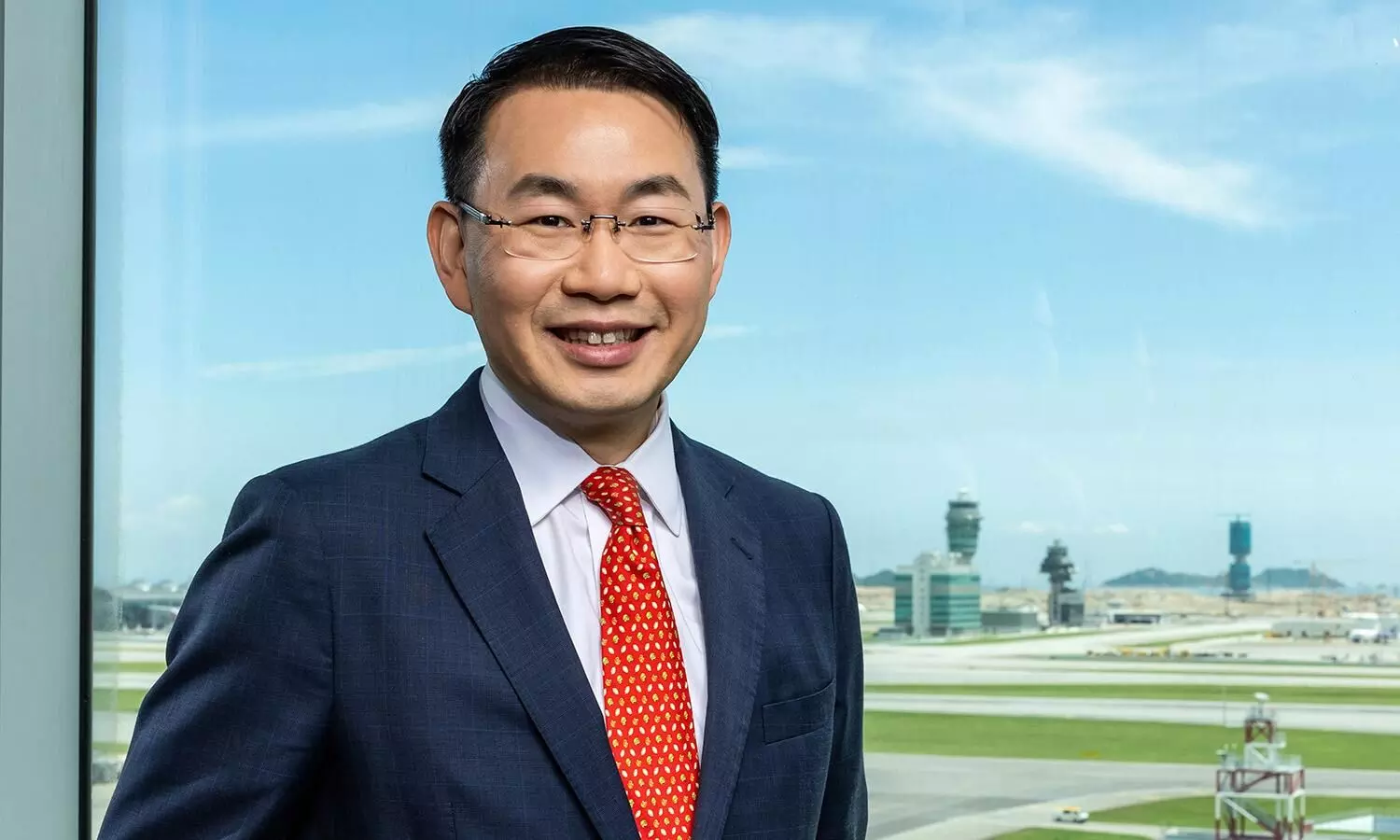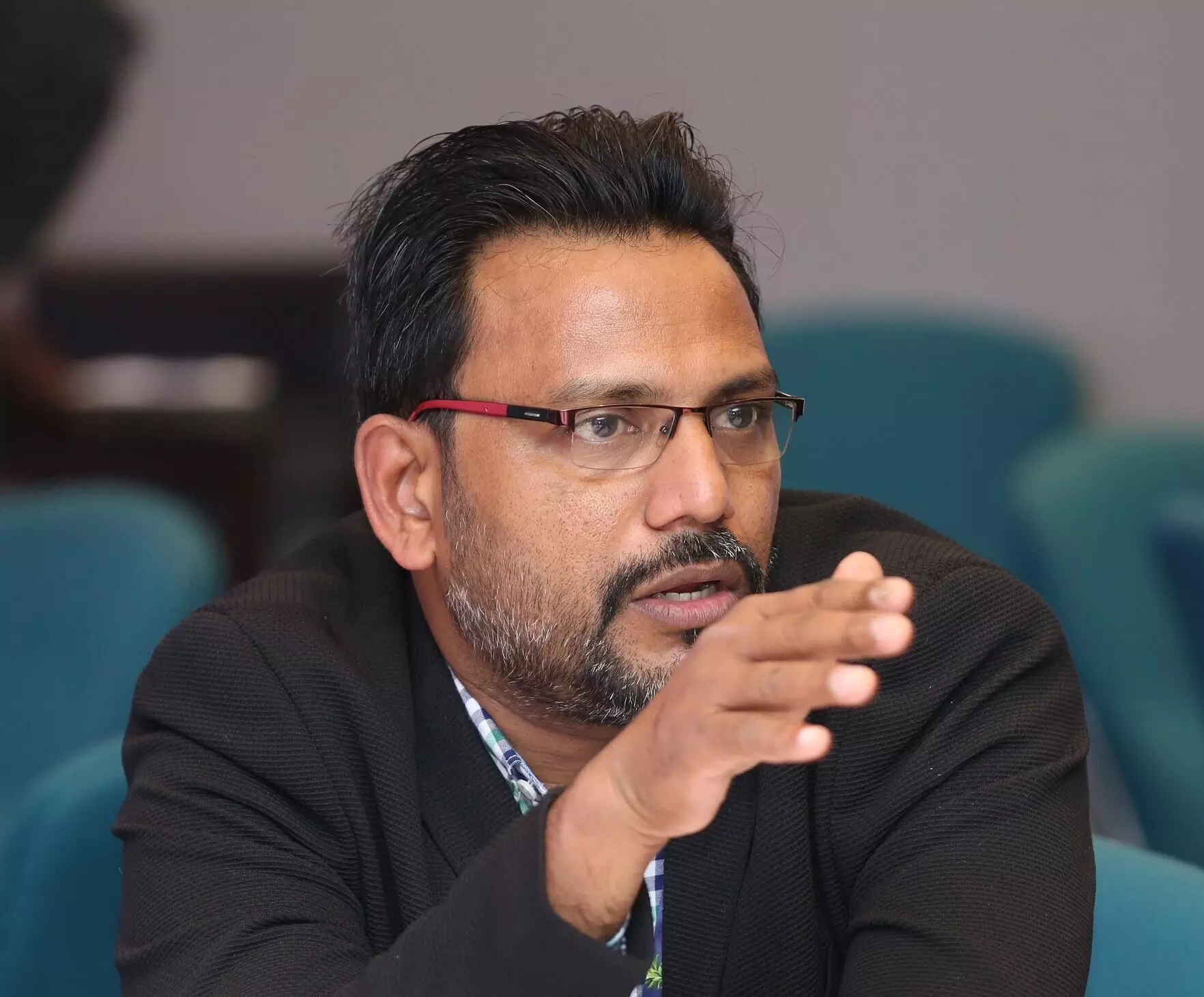
Unlocking the limitless potential of zero-waste upcycling
An exclusive interview with Hactl CEO Wilson Kwong about zero-waste upcycling

Wilson Kwong, Chief Executive Officer, Hactl
Hong Kong Air Cargo Terminal Limited (Hactl) chief executive Wilson Kwong speaks to The STAT Trade Times about zero-waste uniform upcycling, a unique circular economy and sustainable development initiative that turns old uniforms into upcycled cups, demonstrating limitless potential of zero-waste upcycling.
When did you think of the zero-waste upcycling project? What drove you to this unique initiative?
The project was an integral part of the overall program for uniform redesign and replacement. With our aim of zero-waste, and after initial research indicated limited opportunities to avoid sending the old uniforms to landfill, we were determined to find a better solution. Initially, we produced upcycled bags and teddy bears, but we aimed for a more scientific approach. Hactl continued to explore ways to give new life to the old uniforms, which are made from mixed fibers. However, the polyester fiber recycling industry in Hong Kong is currently not well developed, so it was necessary to seek solutions overseas.
When you have such a great idea of upclying you have to have a reliable partner to achieve that goal. How challenging was it to identify Lo Sing Chin (fashion designer) and Ecolog to get your old uniforms upcycled to very aesthetic cups?
Our designer, Sing, shared our passion for upcycling and recycling fashion, deeply concerned about the wastefulness of fast fashion. However, he had little previous experience in upcycling textile waste on an industrial scale, nor with uniforms and workwear, making it a learning curve for both of us. Sing discovered a Japanese company named Ecolog by chance while attending an exhibition. This company specializes in recycling discarded clothing and employs innovative technology to extract and pelletize polyester fibers from old garments. These recycled fibers can then be used to create items such as recyclable hangers, cups, holdalls, and other everyday products.
Is this an ongoing partnership with Lo Sing Chin and Ecolog and can we expect to have similar initiatives in the future?
For us this was really a one-time project necessitated by the exceptional need to dispose 8000 redundant uniforms in a responsible manner. But Sing and Ecolog have both learned from their participation, so who knows what Hactl has started? We always promote our sustainability initiatives, and publish the details in our annual Sustainability Report and various promotion platforms, in the hope that others will see what we have achieved and be inspired to mount their own efforts.
Going by the records, Hactl has been a conscious player in sustainability projects and initiatives since 2018 and this is one of the highlights of Hactl’s vision for NetZero, carbon neutral and be fully sustainable; what are the key principles and values that drive Hactl’s mission?
Hactl’s entire sustainability drive is motivated and directed by our Sustainability Strategy Framework, which covers every aspect of our business, and sets goals and policies that direct every decision and action. The framework goes far beyond climate change mitigation to cover ethics, inclusivity and support for our community: People and Planet before Profit, as we say. As for the cost, we consider Sustainability as essential rather than optional; we have one planet, we need to fix the damage we have done, and time is running out. But as I frequently say, what is good for the planet is usually also good for our business: so many of the measures we have introduced for sustainability reasons have also brought commercial benefits such as greater efficiency and reduced costs.
How does Hactl make these and other projects so integral to the core strategy of the organization and how does the CEO take the organization on his side to achieve such ambitious goals?
As mentioned, it’s our Sustainability Strategy Framework that guides our actions. As for getting our staff on side, we have had a long-term programme of engagement through projects such as our annual Green Week, which seeks to change their thinking and behaviour, and to help them understand how their small personal actions collectively make huge differences. The message has been enthusiastically accepted, and they are now as eager as we are to maintain and increase our momentum.
What do you do with the upcycled cups? Are they available for purchase?
This batch of cups is being given to staff as gifts with a meaning, as well as being used as promotional gifts to industry friends and customers. Like the bags and teddy bears that went before, they are effectively ambassadors for our projects.
What more items are in your imagination to produce through upcycling old clothes or other similar materials used in the terminal?
Each year brings new ideas! We have already produced office furniture, business gifts and décor items from old wooden pallets. Then we produced the bags and bears. Now it’s cups. I have no doubt we will identify a new source of re-usable waste in due course, and an equally imaginative use for it!
“What is good for the planet is usually also good for our business. So many of the measures we have introduced for sustainability reasons have also brought commercial benefits such as greater efficiency and reduced costs.”
Personally, how closely are you and your senior leadership involved in some of these projects? This is a matter of being creative, making a difference and going that extra step to be conscious of what we do and how we take care of the planet we live, do you agree?
Nobody made me and my management colleagues champion sustainability. It’s not in our job descriptions (yet!), and we don’t get paid more for saving the planet as we work. It has been a steady progression that started with modest ideas and projects, and has now taken on its own life. Now we compete to out-do each other for ideas, our staff have willingly joined our journey, and we challenge ourselves daily to root out waste and wasteful habits, and do something about them. It is an attitude of mind: a determination that we will not be the last generation on this planet, and that we will try to pass it on to our children in a better condition than we found it. That matters to us all.
How strongly do you believe you're setting a high benchmark for others in the aviation and air cargo industry with what appears to be a small initiative but has a significant impact?
Perhaps that’s for you to tell me! The fact that you are interviewing us on this topic suggests that you have seen our progress to date, and feel it’s worth showing to others. Yes, I hope we do inspire others – because we can’t achieve it all on our own. And we’re grateful to our media friends for helping us to broadcast our sustainability message.
This was originally published in the November 2024 issue of The STAT Trade Times.

